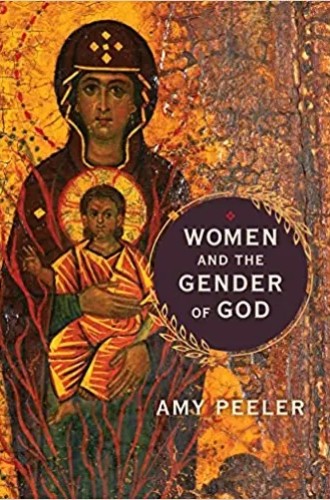The gender identity of God—and Jesus
Amy Peeler offers a great resource for Christians who have struggled to understand God’s call to women.
Because I was raised in a conservative evangelical church and now work alongside women in pastoral roles at an ecumenical nonprofit, I have consumed a plethora of books about the role of women in traditional ministry. Even with all of this book knowledge and hands-on experience, Amy Peeler’s new book still rocked me.
Women and the Gender of God is an intensely footnoted study of all things women, the church, and who God is. “Theology has consequences,” writes Peeler, a New Testament professor at Wheaton College. “It is easier to devalue and then mistreat those humans who are believed to be less like God.” Peeler dives into biblical depictions of the gender of God—not to argue against his maleness, but rather to show how he is not fully male. “To think of God as beyond gender in the sense that God . . . is Parent or Mother and not only Father, helps to work against the ‘phallacy’ that God is male.”
In a chapter called “God Is Not Masculine,” Peeler argues that seeing God as masculine hurts believers’ relationship with themselves, each other, and God:
If God is like a male in relationship with the world who is like a female, and God is clearly superior to the world, then that image suggests that males are superior to females. . . . At the same time, what a burden this association between God and masculinity places upon men, who fall prey either to despair over their failure to rise to this divine-like superior position or to the lust for power itself over women and less manly men.
Still, Peeler asserts, it is appropriate to refer to God as Father—not only “because the tradition did so but also because Jesus did so.”
Next, Peeler poses the question: If Jesus was born to a woman and a God who isn’t fully male, what was Jesus’ gender identity? I had to get a second cup of coffee at this point, because I’ve always been pretty convinced that Jesus was fully male. But Peeler offers a more nuanced answer than that. She cites multiple sources that counter this traditional perspective, including Andrew T. Lincoln, who raises the potential DNA-related issues associated with Jesus not having a human father. She concludes that the flesh of Jesus is both male and female:
If Jesus had human flesh, and the texts of the New Testament are rather adamant that he did, that human flesh came from her. Mary supplies what the woman normally supplies in procreation: her genes, her body, her food, her energy, her blood. God’s Holy Spirit overshadowed her flesh so that it could do what it could not do on its own, namely, conceive a child. To send the Savior, the Spirit came upon only one human, and that human was a woman.
The lack of a human man’s participation in the conception of Jesus, Peeler clarifies, is exactly what makes the story unifying to the church as a whole: “The virginal conception reveals that the Messiah, whose body was crucified and resurrected, embraces male and female, and therefore can in a powerful and beautifully inclusive way save all humans. In short, a male-embodied Savior with female-provided flesh saves all.”
Peeler points out that Mary was not only the means by which the Savior was physically given life in human form but also nursed him, held him when he cried, and knew him on a deeper level than any other human could. She argues that Mary’s story is evidence that God uses women in ministry. “If God entrusted himself to her body and instruction and his story to her voice, then . . . God has deemed the bodies and voices of women worthy of gospel participation, from raising the next generation to the act of testifying to countless generations. God values women.”
Women and the Gender of God is a great resource for Christians who have struggled to understand God’s call to women. It had me digging through multiple translations of the Bible for comparison, its immense number of citations added several books to my reading list, and it gave me fresh ideas to toss around in my mind as I continue to study gender roles in the church. It’s also an excellent choice for readers interested in the life and legacy of Mary. But Peeler has an even broader aim: “I present this book as an apologia of the unwavering conviction that drives my life, that the Christian God loves women.”






